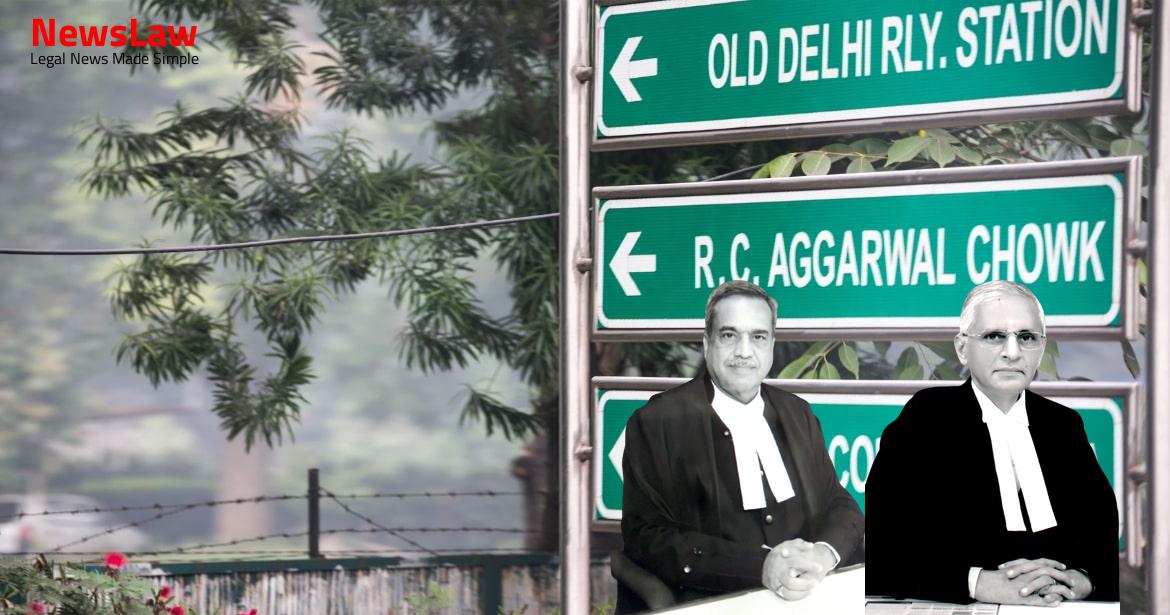In a significant legal development, the Supreme Court of India has issued a landmark judgment in the case involving the Rajasthan State Road Transport Corporation and the High Court of Rajasthan. The judgment deals with the constitutionality of Regulation 4(3) and its implications on compassionate appointments in the state. This decision is set to have far-reaching consequences on the interpretation of Article 14 of the Constitution of India. Let’s delve into the details of this crucial case.
Facts
- The appeal is filed by the Rajasthan State Road Transport Corporation against the judgment of the Rajasthan High Court.
- The High Court declared Regulation 4(3) of the Rajasthan State Road Transport Corporation Compassionate Appointment Regulations, 2010 as violative of Article 14 of the Constitution of India.
- The Respondent filed a Writ Petition in the High Court challenging the constitutionality of Regulation 4(3) after his request for compassionate appointment was rejected.
- The father of the Respondent, who worked as a Helper in the Corporation, died in a motor accident, leading to a claim for compensation before the Tribunal.
- The Tribunal awarded a compensation amount lower than what was claimed by the Respondent.
- The High Court allowed the Writ Petition on the ground that Regulation 4(3) of the Regulations is discriminatory and violative of Article 14 of the Constitution.
- Compassionate appointment is aimed at mitigating the hardship of the family members of the breadwinner in distress.
- Regulation 4(3) prevents the family from claiming both compassionate appointment and compensation if an employee dies while traveling in the corporation’s vehicle.
- The regulation was deemed discriminatory because compassionate appointment can be granted in similar situations when the accident involves a vehicle not owned by the Corporation.
- The High Court emphasized the need to provide compassionate appointments to families in distress, regardless of the vehicle involved in the accident.
Also Read: Case of Technical Equipment Officer Appointment Criteria Dispute
Analysis
- Legal representative of deceased employee must file an application for compassionate appointment in prescribed format.
- Application must be accompanied by an Affidavit on a non-judicial stamp paper of Rs.10/-.
- Affidavit should state that no claim petition has been filed against the Corporation and no such claim will be filed in the future.
- In case of a future claim petition before MACT, employer/Corporation reserves the right to cancel the appointment without notice.
- Legal representative also agrees not to file any case against such dismissal in any competent court.
- In the analysis, the court emphasizes the validity of reasonable classification under Article 14 of the Constitution.
- The court discusses the classification of dependents of deceased employees for claims of compassionate appointment and compensation under the Act.
- It is noted that the classification is based on intelligible differentia and has a rational nexus to the objective of the Regulation.
- The rationale behind disqualifying dependents of employees who died in accidents involving the Corporation’s vehicle is to avoid additional burden on the Corporation.
- The court finds a reasonable relationship between the basis of classification and the objective of the Regulation 4(3).
- Dependents of employees involved in accidents with Corporation vehicles are distinguished from those in accidents with non-Corporation vehicles.
- The intention of Regulation 4(3) is to relieve the Corporation from compensation liability under the Act while providing compassionate appointment.
- The analysis focuses on the rationale nexus of the classification with the objectives of the Regulation.
- The case involved a dispute regarding the deduction of salary earned by a claimant appointed on compassionate grounds when calculating compensation for her husband’s death.
- The court clarified that the death of an employee while travelling in the Corporation’s vehicle does not qualify for compensation under the Act and compassionate appointment simultaneously.
- The High Court questioned the constitutionality of Regulation 4(3) stating it was discriminatory and violated Article 14 of the Constitution.
- High Court’s reasoning was that dependents of employees who died in accidents involving Corporation vehicles were not eligible for compassionate appointments after claiming compensation, unlike those involving non-Corporation vehicles.
- The High Court emphasized that dependents of employees, regardless of where the accident occurred, should be treated equally in terms of compensation and compassionate appointment.
- Regulation 4(3) is not violative of Article 14 of the Constitution.
- The Respondent has already received compensation under the Act.
- As per the Act, the Respondent is not entitled to compassionate appointment.
- Therefore, Regulation 4(3) is not discriminatory in this case.
Also Read: Supreme Court Judgement on Transfer of Mining Environmental Clearances
Decision
- The Respondent’s application for compassionate appointment was rejected by the Corporation
- The rejection was based on Regulation 4(3) of the Regulations
- The Respondent had filed a claim petition under the Act
- The High Court allowed the Writ Petition citing a relevant judgment
- The Corporation’s appeal is allowed based on a specific judgment
Also Read: House Breaking by Night: Verdict Reversal and Reinstatement of Military Personnel
Case Title: RAJASTHAN STATE ROAD TRANSPORT COROPORATION Vs. DANISH KHAN .
Case Number: C.A. No.-007802-007802 / 2019



